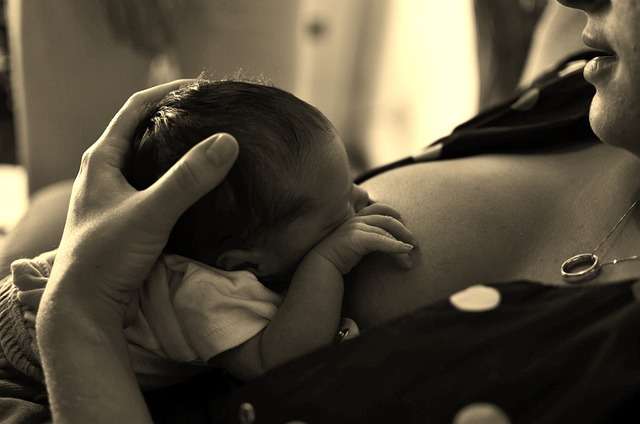
The bond of breastfeeding is powerful, but few moms realize it’s also their child’s very first dental treatment. Every suck, swallow, and breath at the breast is shaping how your baby’s mouth develops—from the width of their jaw to how their teeth will line up years down the road. And those early habits can even play into speech, breathing, and yes…cavities.
I’m a dentist (and mom of four), and I’ve spent years watching little mouths grow. What I’ve learned? Those sleepy nursing sessions you’re logging now can have ripple effects you’ll see in orthodontic bills—or the lack of them—later. Let’s break it down.
Breastfeeding: Nature’s First Orthodontic Work
Think of breastfeeding as a natural workout for your baby’s mouth. Nursing strengthens the jaw, tongue, and facial muscles in a way bottles just can’t. That effort widens the palate and creates room for teeth to come in straighter. Translation: fewer expanders and braces later.
With bottles, babies don’t use their muscles in quite the same way, which is why narrow arches and crowded teeth are so common. So when you’re feeling worn out from another marathon feeding session, remind yourself—you might just be saving your future self a chunk of orthodontic change.
Breathing, Talking, and Smiling
A wider jaw isn’t just about straight teeth—it also means more room for the tongue. That extra space supports better speech development and easier breathing. Kids with narrow jaws are more likely to snore or struggle with sleep-disordered breathing, which can affect everything from energy to mood.
So yes, while you’re rocking that baby at 2 a.m., you’re also quietly helping them sleep better in the years to come. (I know—where’s the medal for that?)
The Cavity Question: Clearing the Confusion
Here’s where moms start to worry: Does breastfeeding cause cavities? The short answer—breast milk itself isn’t the villain. The real issue is when and how long milk sits on the teeth.
During the day, your baby often swallows, and saliva washes milk away. At night, though, saliva production slows down. If a baby falls asleep at the breast after their first teeth come in, that milk can pool around teeth for hours, creating the perfect setup for cavities.
This is why most pediatricians recommend starting to phase out nighttime feeds around 6–9 months, when babies can usually get enough calories during the day and are developmentally ready to sleep longer stretches. By the time those first teeth appear, it’s especially important to avoid overnight milk baths. Not only does everyone sleep better, but your baby’s teeth stay healthier, too.
Goodbye, Thumb and Pacifier
Another bonus—breastfed babies often have less need for pacifiers or thumb-sucking. Nursing satisfies their sucking reflex in a healthier way, which means fewer long-term habits that can shift teeth or narrow the jaw. Less thumb, fewer worries.
What Parents Can Do After the First Teeth Arrive
Here’s the simple playbook:
- Keep up daytime nursing. It’s still good for baby’s teeth (and your bond).
- Start phasing out night feeds around 6–9 months. Most babies no longer need the calories, and it protects those first teeth from cavities.
- Brush those tiny teeth. As soon as the first tooth pops through, use a baby toothbrush and a tiny smear of toothpaste.
- Watch for red flags. White spots, unusual fussiness with eating, or chipped enamel mean it’s time for a dental visit.
First Dentist Visit: Sooner Than You Think
Most parents are surprised to hear that the first dental visit should happen by age one. It sounds early, but it’s the best way to catch problems before they become…well, problems. A quick check can confirm that everything is on track and give you peace of mind.
Breastfeeding is a gift—and not just for your baby’s tummy or your bond. It’s laying the foundation for their future smile, their airway, and even their sleep. With a few simple steps—like cutting nighttime feeds around 6–9 months and brushing those brand-new teeth—you can stack the odds in favor of a straighter, healthier grin.
Motherhood is a swirl of advice, decisions, and “am I doing this right?” moments. Take comfort in this: every time you nurse, you’re not just nourishing your baby—you’re giving them a head start on a lifetime of healthy smiles.
_____________________________________________________
 Dr. Michelle Jorgensen, DDS, FAGD, TNC, CNAS is a biological dentist, wellness expert, and mom of four. She’s the founder of Living Well with Dr. Michelle and Total Care Dental & Wellness, where she helps families discover natural, practical ways to create lifelong health—starting with the mouth.
Dr. Michelle Jorgensen, DDS, FAGD, TNC, CNAS is a biological dentist, wellness expert, and mom of four. She’s the founder of Living Well with Dr. Michelle and Total Care Dental & Wellness, where she helps families discover natural, practical ways to create lifelong health—starting with the mouth.
















